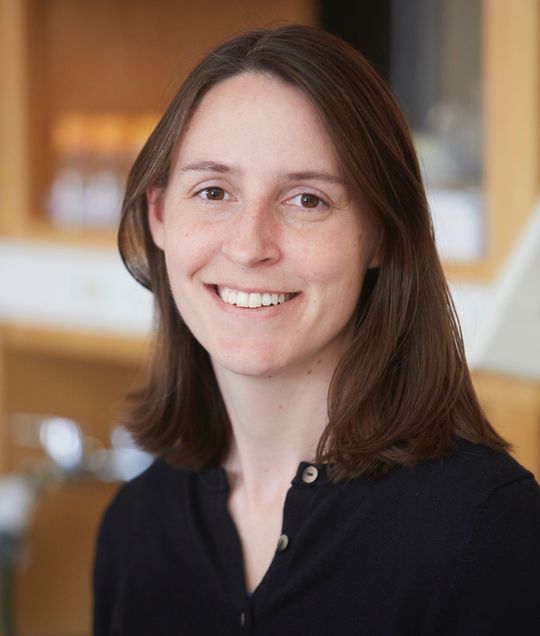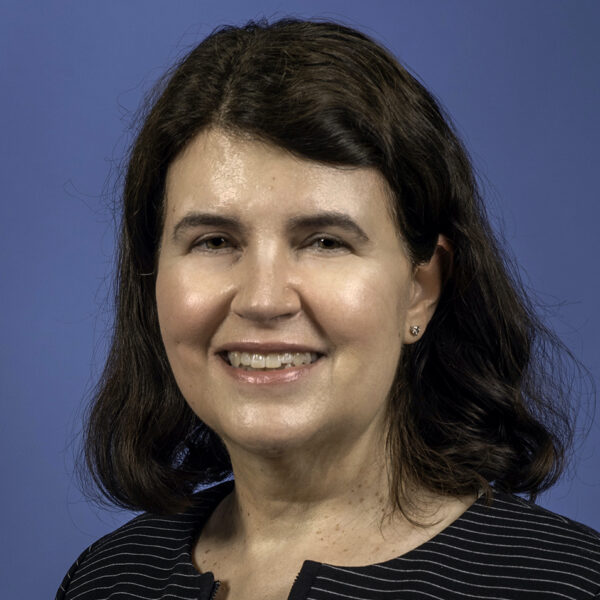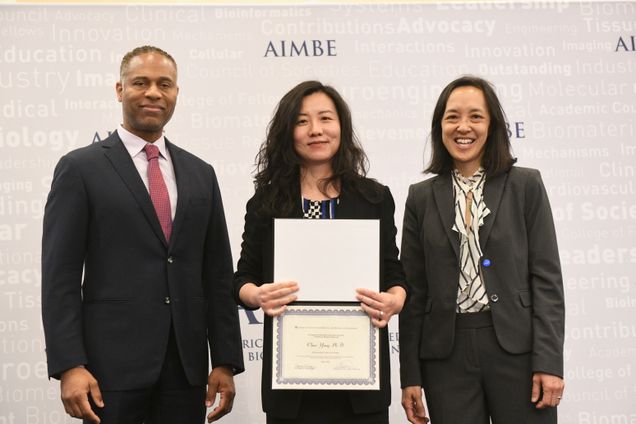Three More AIMBE Fellows from ENG
Yang, Joseph-McCarthy, Dunlop elected to prestigious biomedical society
Associate Professor Mary Dunlop (BME), Professor of the Practice Diane Joseph-McCarthy (BME), and Associate Professor Chen Yang (ECE, Chemistry, MSE) have been inducted into the College of Fellows of the American Institute for Medical and Biological Engineering (AIMBE), earning one of the highest professional distinctions accorded to researchers in the field.
The AIMBE College of Fellows represents the top two percent of biomedical engineers in academia, industry, clinical practice and government across the U.S. and nearly 30 other countries.

Dunlop, who is also BME graduate chair, uses approaches from synthetic biology and systems biology to quantitatively understand and engineer cellular processes. She was nominated, reviewed, and elected by peers and members of the College of Fellows for “outstanding research contributions on cell-to-cell heterogeneity in gene expression alongside leadership in service and education initiatives for synthetic biology,” according to her AIMBE nomination letter.
In a recent study, Dunlop’s team used a deep learning-based feedback algorithm to control gene expression in real time in thousands of single E. coli cells in parallel. “We are particularly excited about this technology because it can be used to precisely control expression dynamics of other genes,” says Dunlop, who in recent years has won a National Science Foundation (NSF) Transitions Award as well as the BU College of Engineering Teaching Excellence Award and was BU’s Biomedical Engineering Professor of the Year in 2019.

Joseph-McCarthy is a former senior life sciences executive who holds dozens of patents and is a former member of the National Academy of Sciences’ Polio Antiviral Advisory Committee. At BU, she is also executive director of the Bioengineering Technology & Entrepreneurship Center. She was elected by her peers for “outstanding contributions to novel computational approaches applied to drug design and the translation of early-stage assets to preclinical/clinical development,” according to her AIMBE letter.
“My group is focused on the development and use of novel computational approaches for understanding protein-ligand interactions at a detailed molecular level, with an emphasis on the design and discovery of new agents for infectious disease pathogens,” Joseph-McCarthy says.
That research has implications for the prevention and mitigation of future pandemics, says Joseph-McCarthy, who is part of a BU team that has received an NSF Predictive Intelligence for Pandemic Prevention grant.

Yang, who is also associate chair of ECE, was elected to the AIMBE College of Fellows for “pioneering contributions in non-genetic neuromodulation, designing material and devices for high precision modulation for fundamental studies and clinical applications,” according to her letter from AIMBE.
“We’re developing unique tools that will help us understand fascinating fundamental questions,” explains Yang. “How and why does the brain respond to mechanical stimuli?” Moreover, her novel technology might lead to treatment for Alzheimer’s, epilepsy, and even vision loss. Indeed, a device she invented has been licensed to a French company working on retina processing for blind patients whose photoreceptors are damaged but whose optical nerves are still healthy.
“I feel very honored to join this elite group,” says Yang, who is also a member of the Materials Research Society and the International Society for Optics and Photonics, and won an NSF CAREER Award in 2009. “They’re recognizing that the research we’re doing is exciting and can make a contribution to the biomedical engineering community.”
